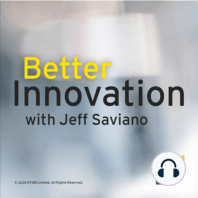42 min listen

COVID-19 & Crisis Innovation: Data Cooperation with Dr. David Bray
COVID-19 & Crisis Innovation: Data Cooperation with Dr. David Bray
ratings:
Length:
64 minutes
Released:
Aug 28, 2020
Format:
Podcast episode
Description
In a few short years, there will likely be 10x as many IoT devices on the planet than humans. We’ve never had more data, but how do we utilize it without compromising privacy? This week, Jeff is joined by Dr. David Bray, inaugural Director of the GeoTech Center with the Atlantic Council. David knows how to innovate in a crisis. He has been on the front lines of the response to 9/11, anthrax attacks, SARS and now COVID-19. These crisis experiences exhibit the importance of data to help solve and prevent the world’s most difficult problems. Join us for an insider’s look at the future of data sharing through new trust and cooperative models.
Released:
Aug 28, 2020
Format:
Podcast episode
Titles in the series (100)
Artificial Intelligence, Blockchain and Robotics Process Automation are here today. What you and your business need to know: Chris Mazzei, EY Global Innovation - Technology Leader and Chief Analytics Officer, has witnessed an explosion of data analytics business applications over the past 17 years during his time at EY. Those applications have expanded to other emerging... by Better Innovation